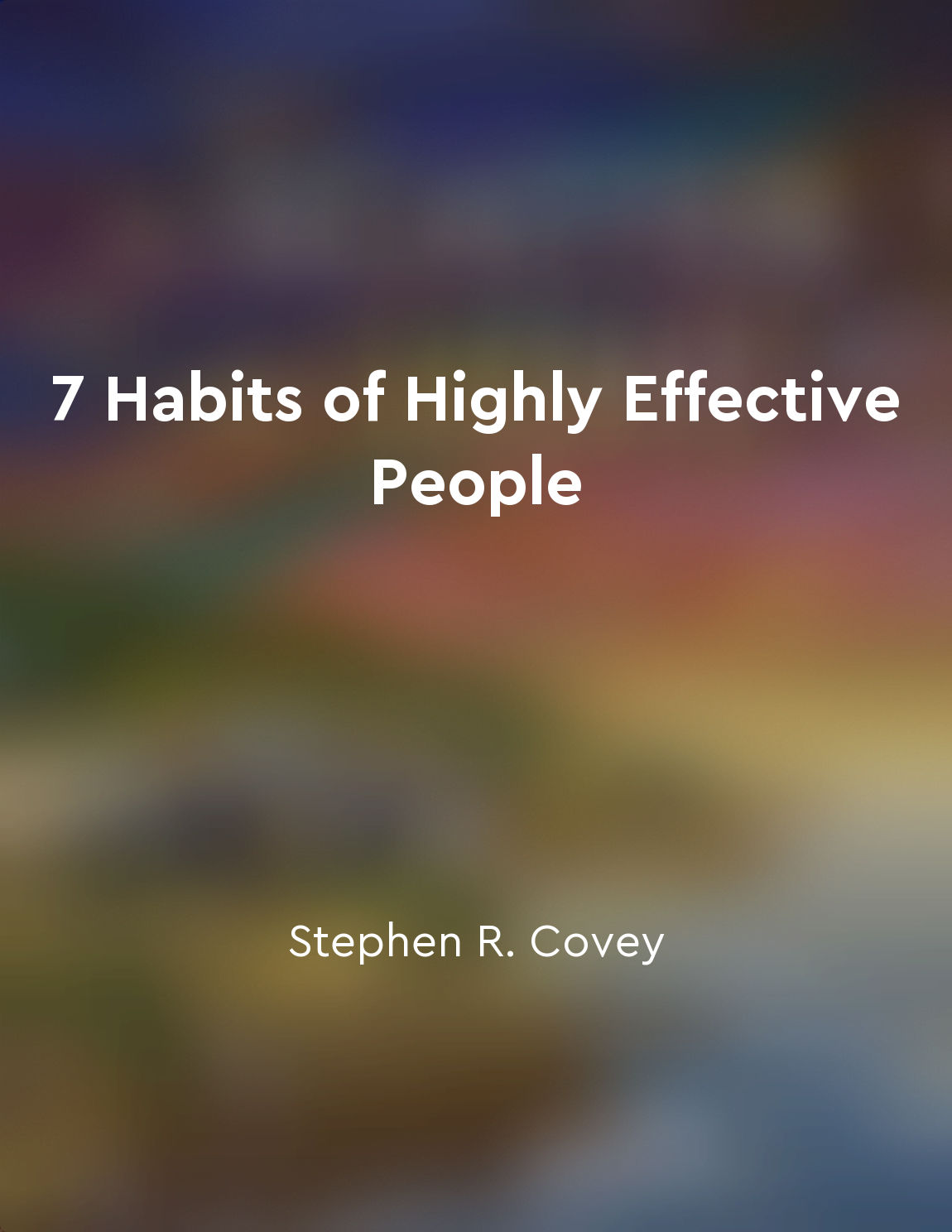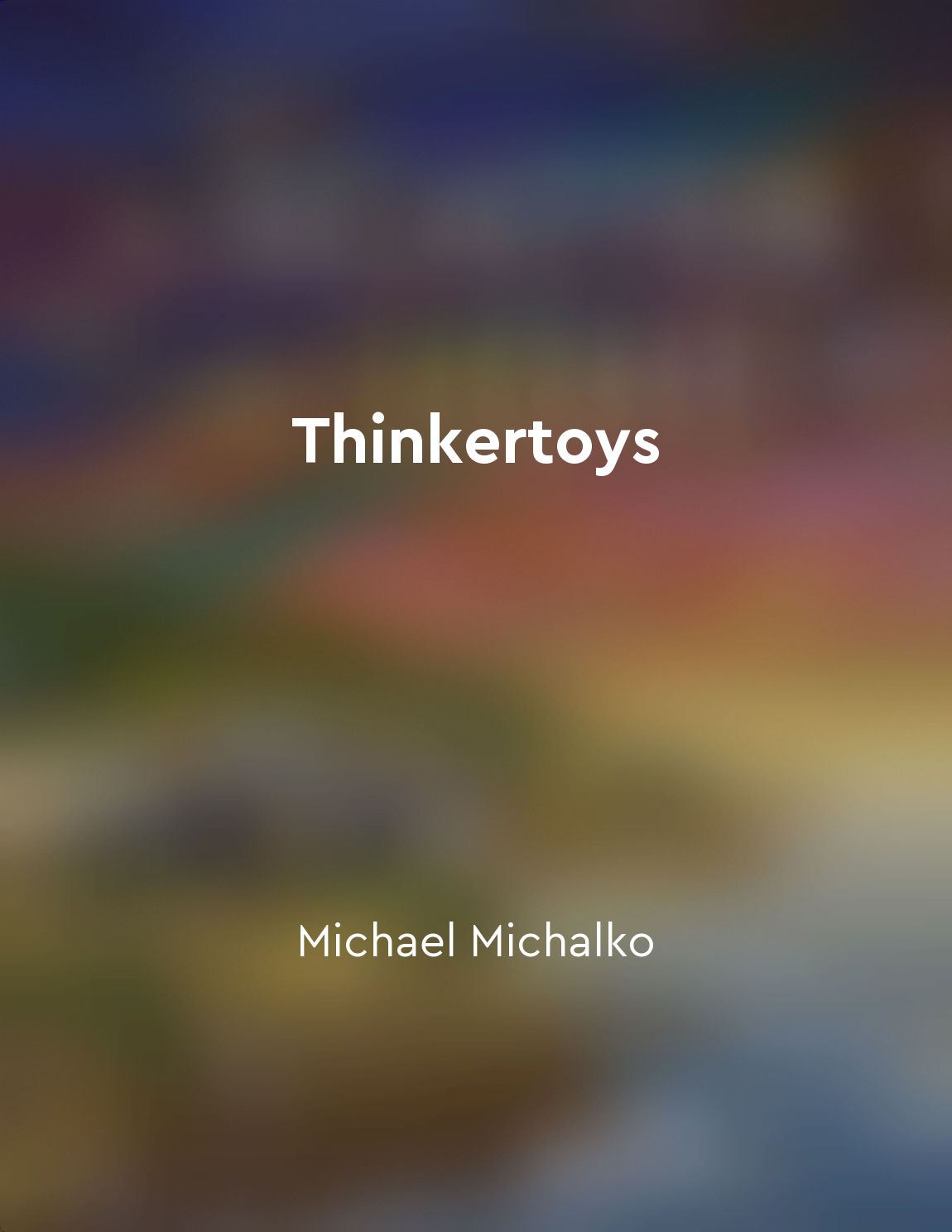Integrative thinking is a key skill for polymaths from "summary" of The Polymath by Waqas Ahmed
In the pursuit of knowledge and mastery across multiple disciplines, the ability to think integratively is a fundamental skill that sets polymaths apart. Integrative thinking is the capacity to synthesize information from diverse fields, connect seemingly unrelated ideas, and form new frameworks that transcend disciplinary boundaries. Polymaths leverage this skill to approach complex problems with a holistic perspective, drawing on insights from various domains to arrive at innovative solutions. Integrative thinking enables polymaths to see the bigger picture, recognizing patterns and relationships that others may overlook. By integrating knowledge from different fields, they can gain a deeper understanding of the interconnectedness of seemingly disparate phenomena. This interdisciplinary approach allows polymaths to uncover novel insights and make unique contributions that bridge gaps between specialized disciplines. Moreover, integrative thinking empowers polymaths to navigate ambiguity and uncertainty with agility and creativity. In a rapidly changing world where traditional boundaries are increasingly blurred, the ability to integrate diverse perspectives and adapt to new challenges is essential for success. Polymaths excel in embracing complexity, embracing contradictions, and embracing paradoxes, seeing them not as obstacles but as opportunities for growth and innovation. Furthermore, integrative thinking enables polymaths to transcend conventional thinking patterns and break free from the constraints of siloed knowledge. By synthesizing ideas from different disciplines, they can challenge entrenched paradigms and envision new possibilities that transcend the limitations of narrow specialization. This ability to think beyond boundaries and integrate diverse perspectives is what allows polymaths to push the frontiers of knowledge and creativity.- Integrative thinking is the cornerstone of polymathic thinking, empowering individuals to navigate the complexities of the modern world with creativity, agility, and resilience. By cultivating this key skill, polymaths can unlock their full potential as innovative thinkers, problem solvers, and change makers. Through integrative thinking, polymaths can transcend the limitations of traditional thinking patterns and make a meaningful impact on the world around them.
Similar Posts
Authenticity fosters trust and connection
Being authentic means being true to ourselves, showing others who we truly are without any pretense or facade. When we are auth...
The transistor revolutionized electronics
The transistor was a breakthrough invention that transformed the world of electronics. Before its creation, electronic devices ...
Stay committed to your values and principles, even in the face of challenges
In life, we will undoubtedly face challenges that test our commitment to our values and principles. It is during these difficul...

Balance shortterm gains with long-term sustainability
It's easy to get caught up in the hustle and bustle of making quick profits. After all, who doesn't love the thrill of seeing i...

Sharpen the saw
Sharpen the saw is the seventh habit of highly effective people. It means preserving and enhancing the greatest asset you have ...
Embrace uncertainty as a catalyst for change
Embracing uncertainty can be a powerful driver for transformation. When we are faced with uncertainty, we are forced to questio...
Success is not always linear or predictable
Success doesn't always follow a straight path or adhere to a predetermined trajectory. In fact, the journey to success is often...
Alan Turing laid the foundation for modern computing
Alan Turing's groundbreaking work in the early 1940s played a crucial role in the development of modern computing. His theoreti...
Collaboration is a cornerstone of polymathic endeavors
When it comes to navigating the complex landscape of polymathic endeavors, one cannot overlook the crucial role that collaborat...

Defy conventional wisdom
To think creatively, you must be willing to challenge the status quo. Conventional wisdom is often just a collection of assumpt...

